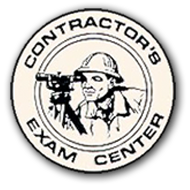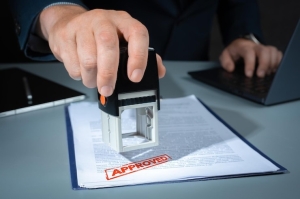• CSLB Licenses Businesses/Entities (Not Individuals)
• License Qualifier Must Demonstrate Experience
• Be at Least 18 Years-Old
• Have Either of the Following
1. Valid Social Security Number (SSN)
2. Valid Individual Taxpayer Identification Number (ITIN) Use Q&A to ask a question
• Have Either of the Following Qualifying Experience (More Later)
1. You have at least four years’ experience within the last 10 years as a journeyperson, foreperson, supervising employee, or contractor in trade being applied for
2. You get a qualifier for the license who has that experience
You Can Substitute Education, Technical Training & Apprenticeship Training for Some Use Q&A to ask a question of Required Experience
• CSLB cannot pre-judge your experience – Documents are reviewed after you apply
• To get credit, course work must be directly related to work you’ll be doing as contractor
• Education can not be substituted for more than three years of required experience
• You must provide written documentation
• Copies of Apprenticeship Completion Certificate
• Official Technical School or College Transcripts
• Have them sent to you – Leave transcripts unopened and include with your application packet • No credit for High School courses
Applying for a contractor license is a very important step for anyone looking to work legally and professionally in the construction industry. However, this process can seem complicated and overwhelming if you are not prepared. Submitting your contractor license application properly is crucial to avoid delays, extra fees, or even rejection. Many applicants make common mistakes like missing documents or incorrect information, which can lead to long waiting times or needing to reapply. This article will guide you through each step you need to follow to submit your contractor license application correctly and smoothly. By understanding these key steps, you can increase your chances of approval and begin your contracting career with confidence.
Understand the Requirements Before Applying
Before you start filling out any forms or gathering documents, it is essential to understand all the requirements that your state or local licensing board demands. Contractor licensing rules vary widely depending on your location, so reviewing the official guidelines is your first priority. These requirements usually include proof of your construction experience, financial records to prove you can manage projects, and insurance documents to show you have the necessary coverage. Failing to meet even one requirement can cause your application to be denied or delayed. Many licensing boards provide detailed checklists, and some even offer workshops or online resources to help you prepare. Taking the time to learn these requirements thoroughly will save you headaches and extra costs later.
Prepare Your Application Documents
Once you know what is required, the next step is to carefully gather and prepare all the necessary documents. This often includes proof of your work experience, such as letters from previous employers or clients, tax returns, financial statements, personal identification, and certificates of insurance. Depending on your state, you may also need to submit a background check or a credit report. These documents must be current, accurate, and complete. Incomplete or outdated paperwork is one of the main reasons applications get rejected. If you are unsure about any document or how to prepare it, seek assistance from a licensing expert or a professional organization. Proper preparation of your paperwork ensures your application is strong and ready for review.
Fill Out the Application Form Carefully
Completing the application form correctly is one of the most critical steps. Whether you apply online or through a paper form, every section must be filled out accurately and clearly. Avoid common mistakes such as leaving sections blank, misspelling names, or providing inconsistent information. These errors can cause your application to be delayed or rejected outright. Take your time to read each question carefully and provide honest and precise answers. It is also important to double-check your form for errors before submitting it. Keep copies of your completed application for your records and future reference. If you are mailing the form, make sure to sign and date it where required.
Pay Attention to Fees and Payment Methods
Most licensing boards require applicants to pay a fee when submitting their contractor license application. The fee amount can vary depending on the state or type of license you are applying for. It is important to verify the exact fee and acceptable payment methods ahead of time. Common payment options include checks, money orders, and online payments via credit or debit cards. Be sure to follow the instructions carefully when making your payment and keep a receipt or proof of payment. Missing the payment, paying the wrong amount, or using an unacceptable payment method can cause your application to be rejected or delayed. Always confirm payment details to avoid unnecessary problems.
Submit Your Application On Time
Timely submission of your application is vital. Each licensing board sets deadlines or specific windows during which applications must be submitted. Submitting after these deadlines may mean your application is rejected or you will have to wait for the next application cycle. If you are mailing your application, consider sending it well before the deadline to account for any postal delays. For online submissions, ensure you complete the process before the official cut-off time. It is also a good idea to send your application via certified mail or use tracking services to confirm that it arrives safely. Keeping track of your submission date helps you stay organized and reduces stress during the application process.
Follow Up After Submission
After submitting your contractor license application, it is important to follow up with the licensing board to check the status of your application. Processing times can vary from a few weeks to several months, depending on the board’s workload and verification procedures. If the board requests additional documents or clarifications, respond promptly to avoid further delays. Keeping in contact also shows your seriousness and helps you stay informed about any next steps, such as scheduling exams or interviews. Be sure to keep copies of all correspondence and notes of any phone calls or emails. This will help you track your progress and resolve any issues quickly if they arise.
Tips for Avoiding Common Application Mistakes
Many applicants face delays or rejections due to avoidable errors during the application process. To help prevent this, double-check every section of your application for completeness and accuracy. Avoid submitting photocopies when originals or certified copies are required. Ensure that all signatures are present and match your legal name. Also, carefully review the licensing board’s instructions and frequently asked questions, as these often highlight common pitfalls. Staying organized by creating a checklist of required documents and steps can make the process smoother. If possible, have a professional or experienced contractor review your application before submission to catch any mistakes you might have missed. Taking these extra precautions can save time and increase the likelihood of your application being approved without issues.
Conclusion
Submitting your contractor license application properly is a crucial part of starting your career in the construction industry. By thoroughly understanding the requirements, preparing all necessary documents carefully, and filling out your application accurately, you greatly improve your chances of approval. Paying attention to payment details, submitting your application on time, and following up after submission all contribute to a smooth and successful licensing process. Remember, taking the time to do things right the first time saves you from delays and extra costs. Use reliable resources like ContractorsLicenseTutors.com and consider professional help if needed. With the right approach and preparation, obtaining your contractor license will be a much easier and faster process.
•Credit Examples (Maximum Credit: 36 Months) 10 What You’ll Need to Get a License Type of Credit Amount of Credit Construction Management –Bachelor of Science Degree 36 Months Business –Masters Degree Business –Bachelors Degree Law Degree 24 Months Construction Management –Associate in Science Degree 18 Months Other Bachelor of Science / Bachelor of Arts Degree 18 Months (Average) Other Associate in Science / Associate in Arts Degree 6 Months (Average) Individual College Classes Determined on Case-by-Case Basis Usually with a Maximum of Six Months Apprenticeships 24 to 36 Months Depending on Classification & Program Technical Training Some Minimal Credit with Transcript
• Some of Your Military Service May Count
• Determined on Case-by-Case Basis
• Pass Two Exams (Taken on Computer) 1. Law & Business 2. Specific Trade • Limited Specialty Trades – Law & Business Exam Only
• Before License is Issued Use Q&A to ask a question
• Qualifier Must Take and Pass All Required Exams or Qualify for Waiver
• Qualifier Must Undergo Criminal Background Check
• After License is Issued
• Qualifier is Responsible for Exercising Direct Supervision and Control of the construction operations, as well as for all workmanship issues
• Prime contractors are responsible for sub-contractor’s work
• Sole Ownership Use Q&A to ask a question
• Owner or Responsible Managing Employee (RME) may serve as qualifier
Corporation • Either one of current officers, designated as Responsible Managing Officer (RMO), or a RME may serve as qualifier
• Partnership • Either of the General Partners or a RME may serve as qualifier
• Limited Liability Company (LLC)
• A Responsible Managing Member, Responsible Managing Manager, RMO, or RME may serve as qualifier
• Three Classifications of Contractors Use Q&A to ask a question 1. Class “A” – General Engineering Contractors Principal business is in connection with fixed works that require specialized engineering knowledge and skill 2. Class “B” – General Building Contractors Principal business deals with any structure built, being built, or to be built, that requires as part of its construction at least two unrelated building trades or crafts No limitation on framing or carpentry projects 3. Class “C” – Specialty Contractors For construction work that requires special skill and whose principal contracting business involves the use of specialized building trades or crafts • Examples include C-10 Electrical, C-20 HVAC, C-27 Landscaping, C-36 Plumbing, C-39 Roofing, C-46 Solar, C-53 Swimming Pool • C-61 Limited Specialty (30 Limited Classes, including C-61/D-34 Prefabricated Equipment)
B2: Residential Remodeling Classification
• Allows contractors who don’t have structural framing experience to get a license with CSLB. B-2 License Holders: ✓Must engage in three or more trades or crafts on a project. ✓Are limited to working on existing residential wood frame structures. B-2 License Holders Can Not : Make structural alterations to load bearing partitions and walls. Install or extend electrical or plumbing systems. Install or replace HVAC systems. B-2 License Holders Must Meet CSLB Requirements: • Experience • License Bond • Workers Compensation Insurance
The Application Process
1. Identify Who will be the Qualifier for Your License Use Q&A to ask a question • If you’re using RME qualifier, determine if he/she can get for an exam waiver • Qualifier is responsible for exercising direct supervision and control of company (Business & Professions Code 7068.1) • Be aware of companies that connect you with qualifiers • Not willing or don’t understand their responsibilities as qualifier
2. Complete the Correct Application • “Application for Original Contractor License” • “Application for Original Contractor License – Examination Waiver (7065)”
3. Determine Your Company Name (See Application for Examples) • Your name cannot be misleading or imply that you qualify for a license classification other than what you are getting • Corporate & LLC names must match exactly the name registered with the Secretary of State’s Office 4. Using a Doing Business As (DBA) Name • Name cannot be misleading • DBA must be used in all advertising, contracts, etc.
5. Get Certifications to Support Your Work Experience Use Q&A to ask a question • Even if you apply for an exam waiver • Use Multiple Pages if Necessary
6. Be Sure to Note if You’re a Military Veteran • Some of your service may be applied to your experience qualifications • Your application may be expedited and qualify for a 50% reduction in your Initial License Fee if approved. • Must not have been Dishonorably Discharged • Send a copy of your long form DD 214 (Certificate of Release of Discharge from Active Duty) 7. Proofread for Any Missing Information 8. Don’t Forget to Sign and Date the Application 9. Determine if You Need a Special Accommodation to Take Exam(s) • If so, complete request form & submit with application
Fingerprint Requirements
• The Following Must Submit a Full Set of Fingerprints • All Applicants • Each Corporate Officer • Each Member or Manager • Each Partner • Each Owner • Responsible Managing Employee • All Home Improvement Salespersons Use Q&A to ask a question • California Residents Must Submit Fingerprints with Electronic “Live Scan” • Attorney General: List of Open “Live Scan” Locations
• Out-of-State Applicants Must Submit Hard Copy Fingerprints • May take 3-6 months to process • Consider traveling to California to get “Live Scan”
• If You Have Any Criminal Convictions • CSLB May Only Deny License: Use Q&A to ask a question • If conviction is substantially related to the duties, functions, and qualifications of a contractor • If conviction involves fraud or a violent crime • Other Factors CSLB Also Considers Includes: • Nature and severity of the crimes • Amount of time that has passed since a conviction • Any evidence of rehabilitation submitted by the applicant • CSLB Evaluates Criminal Convictions • Felonies: 7 Years from Application Date • Misdemeanors: 3 Years from Application Date • Unless violent felony, certain sexual crimes, or financial crimes related to construction • CSLB Denies Approximately 1% https://oag.ca.gov/fingerprints/locations Bonus Link of Total Applications for Criminal Convictions
Demonstrating Work Experience
• Four Years (48 Months) Experience within the Last Ten Years • In Classification for Which You’re Applying • Journeyman Level • Foreman • Supervising Employee • Contractor • Owner-Builder • Journeyman Use Q&A to ask a question • An experienced worker who is fully qualified, as opposed to a trainee, and can perform trade without supervision, or one who has completed an apprenticeship program
• Use More Pages if You Need To Use Q&A to ask a question • Attach additional page(s) at end of each work experience form • Use Different Forms for Each Certifier • Be as Accurate as Possible • Don’t Simply “Cut & Paste”
• Out of State Contractors • Must include examples of out of state work: • Military • Federal Lands • For a Government Entity • Applicants can qualify as a journeyperson, foreperson or supervising employee • TIP: Be specific about your duties and employment circumstances
Filling Out Your Application
• Don’t Cut & Paste This Presentation Use Q&A to ask a question • Don’t try to get around trade test by applying for multiple subcategories under the C-61 Limited Specialty Classification • Double-check your application for Any Missing Information • Don’t Forget to Sign and Date • Don’t forget to Include Application Fee • Original Application (Exam or Waiver for One Class): $450 • Initial License Fee ($200 sole owner, $350 non-sole owner) is Paid Later • Mail or Hand Deliver to CSLB
The Exam Process
• Use of Translators • CSLB may allow use of translator to read you the exam • Translator must be approved in advance • Don’t show up on exam day with a translator if they haven’t been pre-approved • If You Fail to Appear for Your Exam • You must pay a non-refundable $100 rescheduling fee • Fee may be waived once Use Q&A to ask a question with documented evidence of medical emergency or other circumstance beyond your control • CSLB Study Guides • Lists the sections and topics covered by the exam • Includes sample questions • Shows how each section is weighted • Shows recommended resource materials to study
• On Your Test Day: • Arrive at least 30 minutes early – Allow extra time to get checked-in • Follow the instructions provided online when scheduling your exam.
• You’ll Take Your Exam(s) on a Computer • You’ll see an on-screen tutorial before starting exam • Your exam will consist of multiple-choice questions • Each question has space if you want to submit a comment about that question • You’ll get 3½ hours to complete each exam • Arriving late may reduce the time you have to finish your exam • You’ll get your results at the end of the exam
• If You Don’t Pass • You’ll won’t be allowed to review the questions you missed, but you’ll get a statement showing how you did on each section of the exam • You can reschedule the exam as many times as you need within 18 months • Just pay a non-refundable $100 rescheduling fee
• When You Pass All Exams, You’ll Need to: • Pay initial license fee: $200 for sole owner, $350 non-sole owner (Expires in two years) • Complete CSLB’s Online Asbestos Open Book Exam • File Required Bond(s) • All Licensees: $25,000 Contractor’s Surety Bond • Corporate/LLC: $25,00 bond of qualifying individual for every RME and all RMOs who own less than 10% of voting stock or equity • LLC: $100,000 LLC/worker bond • Get Required Insurance Policies (Filed by Insurance company/broker) Use Q&A to ask a question • All Licensees: Workers’ Compensation Insurance (See CSLB Website for Rules/Exemptions) • LLC: Liability Insurance (See CSLB Website for Amounts) • No Workers? File Workers’ Compensation Insurance Exemption w/CSLB (Filed by Applicant)
Your New License
• Getting Your License Use Q&A to ask a question • In 5-10 Business Days after issue of license, CSLB will send you a wall certificate and plastic pocket license card • Display wall certificate in your main office or chief place of business • Carry pocket license card, especially in situations where you may solicit business, talk to potential customers, or sign contracts • License Will Be Good for Two Years • Your license will expire on the last day of the month when it was issued • Ultimately, You’re Responsible for Renewing Your License On-Time • Put Expiration Date on Your Calendar • CSLB Sends Renewal Notice Approximately 60 Days Before Expiration
• Notify CSLB Within 90 Days If You Move or Change Business Address Use Q&A to ask a question • Renewal notice will be sent to the address of record on-file with CSLB • Postal Service will not forward state government mail • Notify CSLB Within 90 Days of All Changes to Personnel on License





